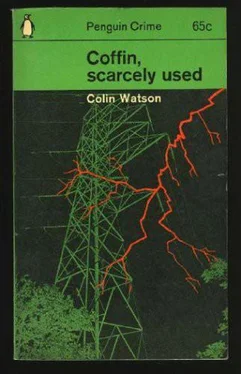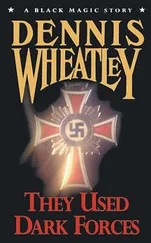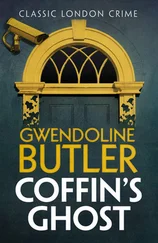Love grunted, and Purbright went on: “As you’ll have realized, the antiques lark, or clinic, or whatever you like to call what you very commendably uncovered this evening, is nothing but a nicely camouflaged...er...what should we say...?”
Comprehension suddenly came upon the sergeant like the smell from a Sunday oven.
“A love nest!”
“Exactly!” said Purbright, admiringly.
Chapter Fifteen
The Flaxborough Sharms were a group of narrow and shabby streets lying between the harbour and the goods station. At one time they had enjoyed a reputation attributable to the appetites and intransigence of foreign seamen, but Continental boats seldom docked at Flaxborough now and the men from the coasters and fishing vessels that did use the port were mostly either natives of the town or regular and inoffensive lodgers in it.
Since the war, the excitements of the place had dwindled to routine drunkenness at the week-end, the odd fight or two, and a little listless wife-beating in such households where that indulgence could be enjoyed without endangering a television set.
Broad Street was in fact not a street but a quadrangle on the northern side of the Sharms. There were a few trees in the centre, a statue of a man in old-fashioned clothes who seemed stricken with impetigo (it was a cheap statue and the material ‘wept’ in damp weather), and a ruined horse trough. The houses on the perimeter were larger than most others in the district, for they had been built to the fancy of the retired master mariners and ship owners of a century and more ago; men who had liked to strut gravely round the little central green and sniff with proprietorial satisfaction the smells of tar, hemp and weed-slimed breakwaters. Their homes now were not so much dignified as gaunt. In their façades of faded stone, streaked brown where guttering had split, were front doors battered and scarred by the impatient passage of sub-tenants and the imprecations of overlooked and locked-out children. The imitation columns that flanked the doors had long since lost their flutings beneath an encrustment of brown paint and grease-bound dust.
Detective Constable Harper discovered with annoyance that the houses of Broad Street were numbered more or less at random. Only after he had trudged along three sides of the quadrangle, peering into dim hallways and cross-examining truculent infants, did he succeed in tracing the entrance of number sixteen to the bottom of a narrow court between numbers twenty-five and twenty-seven.
On the directions of a wall-eyed man in shirt-sleeves who answered his knock, Harper climbed three flights of coco-matted stairs and tapped on a door that boasted a huge white porcelain handle. After a few seconds, the door opened sufficiently to reveal a tired but suspicious eye beneath two hair curlers that bobbed at him like wary antennae.
“Mrs Margaret Shooter?”
“You from the electricity?”
“No, madame. I am a police officer and I have reason to believe you can help us in a matter we are making inquiries into.”
The curlers shook vigorously. “No, I don’t think so. I’ve not got mixed up in anything.”
“There’s no suggestion that you have, madame”—Harker remembered the inspector’s tactical briefing—“but there are just a couple of questions I should like to ask you if you’d be so good as to co-operate. There’s no need for you to be apprehensive, as you might say.” He gave what he hoped was a disarming smile.
“It’s a bit of a liberty, but you’d better come in, I suppose,” said Mrs Shooter, opening the door to display more hair curlers and an expanse of blue dressing-gown.
“If I’ve come at an inconvenient time...” began Harper, resolutely looking away from the garment’s inadequacies.
Mrs Shooter sighed impatiently, grasped his arm and propelled him with some firmness into the room behind her. She closed the door, flopped into an armchair and lit a cigarette. “Now, busy boy, what’s it all about?” She looked bored as well as tired.
Harper sat carefully on the edge of a chair at the farther side of the room.
“We are making inquiries,” he said, “into the visits of certain people to premises at number one hundred and twenty, Spoongate, above a doctor’s surgery. Information has reached us that you were present at that address last evening. Would you mind confirming that, Mrs Shooter?”
She scratched her thigh and regarded him lazily. “You’re making heavy weather of something, son, but I don’t quite catch on to what it is.”
Harper sighed. He was used to extrovert females. “Were you there last night?” he asked baldly.
“Was I where?”
“At Dr Hillyard’s surgery.”
Mrs Shooter hesitated, then said: “Yes, if you say so. He happens to be my doctor. Any objections?”
“You are undergoing some sort of special treatment, aren’t you, Mrs Shooter? In those cubicles upstairs, I mean.”
“Just what exactly are you getting at, copper?” Her tiredness had evaporated. “It’s the first time I ever heard of a busy sticking his snout into a...a...doctor-patient relationship!”
“A doctor-patient relationship,” Harper repeated. He gave a thin, slow smile. “Oh, no, I wouldn’t think of prying into anything like that, madame.”
She scowled and drew angrily on her cigarette. “I don’t have to answer these damn silly questions,” she reminded him.
“That’s so,” he agreed, adding immediately: “What do your friends call you, Mrs Shooter? Would it be Mabs?”
“It might be. What’s that to you?”
“M. A. B. S.?”
“Of course. How would you spell it—with an X?”
Harper smiled again. Half to himself, he murmured: “Mahogany and beech sideboard.”
This earned a look of hostile incomprehension. “Are you all right, copper?”
He went on: “Do you know a Mr Herbert Stamper?”
“No, I don’t.”
“You didn’t meet him last night? By appointment?”
“I’ve told you once, I went to the doctor’s last night. Then came back home. I don’t know anyone called Stamper.”
Harper realized that, in spite of her denials, Mrs Shooter was not going to block his questioning altogether. He saw that she was interested. She was also apprehensive. She wanted to learn how much he knew and what use might, if the police had their way, be made of it. Yet part of her attitude, he told himself, was genuine bewilderment.
“Do you,” he asked her, “know a girl or a woman called Jane?”
“I shouldn’t be surprised.”
“Friend of yours?”
“Maybe.”
He glanced quickly at a list given him earlier that morning by Inspector Purbright. “Japanese Antique Newel, Ebony,” he intoned softly. Mabs Shooter looked in mock despair at the ceiling.
“And what about Joan and Sal? How are they getting along these days?”
The woman said nothing.
“Superior Antique Lampstand,” murmured Harper dreamily. He put the list back in his pocket.
“How long have you and your friends been patients of Dr Hillyard’s?”
“Quite a while. I have, at any rate. I don’t know what friends you’re talking about.”
“I think you do, you know, Mrs Shooter. In fact, I think you know perfectly well what this is all about. You do, don’t you?” Harper’s tone was that mixture of It’s-All-Up and No-One-Will-Hurt-You-If-You-Tell that policemen use when hard evidence seems to have run out and they would give a day’s pay for a nice straight confession.
“Look,” he said, leaning towards her and extending the fingers of his left hand as if in readiness to mark off five irrefutable and urgent reasons for her co-operation, “I’m going to be absolutely frank with you, Mrs Shooter. And what’s more”—he raised his eyebrows—“I’ll tell you right at the start, and with no ifs and buts, that whatever you care to tell me you’ll be in the clear all the way. We’ll hang nothing whatever on you personally so long as you play the game with us.”
Читать дальше












